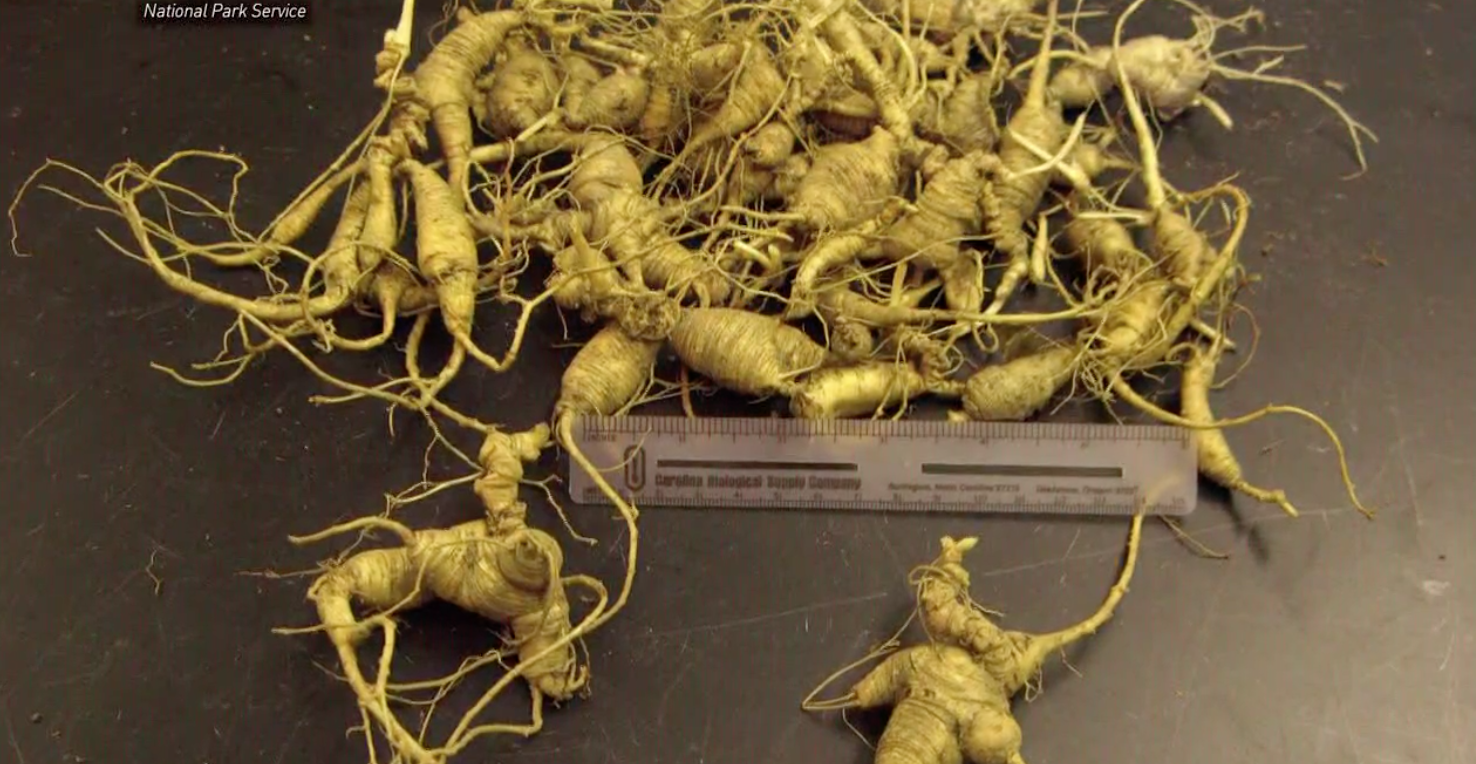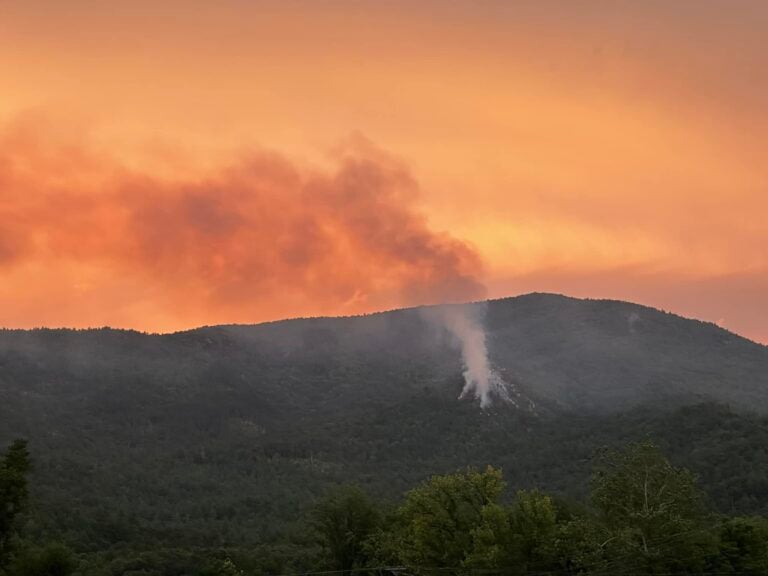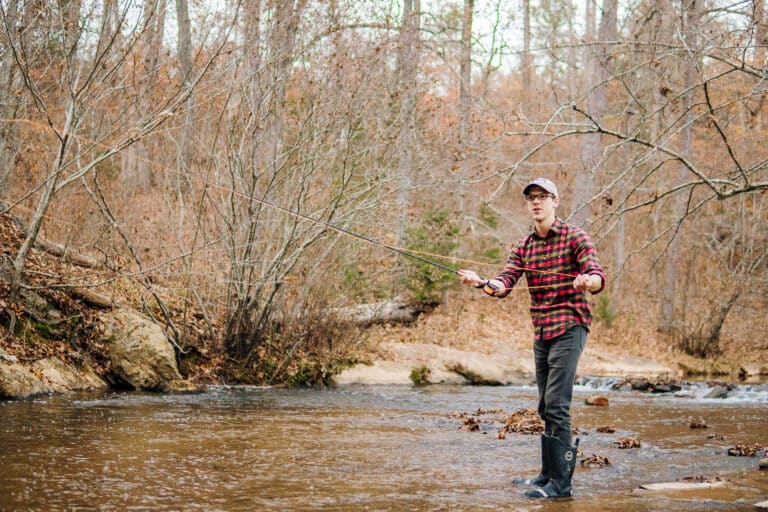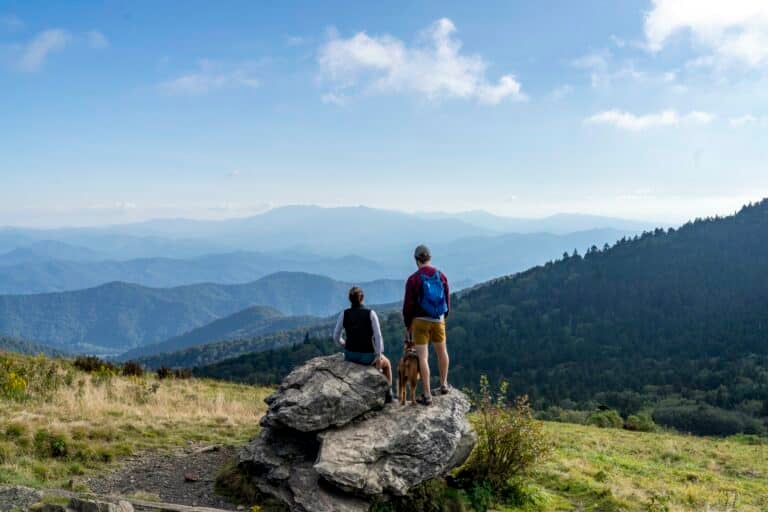Officials in Great Smoky Mountains National Park are seeing an uptick in the illegal harvesting of one of Appalachia’s most storied plants—the ginseng root.
The harvest and sale of Appalachian ginseng goes back at least as far as the early 1700s when French explorers noticed the use of ginseng in traditional Native American medicine. It didn’t take long for the them to realize that the American variety of ginseng was similar to the Asian variety, long prized by the Chinese for its medicinal uses. Once the connection was established, the root was exported to Asia, and the French traders enjoyed a handsome profit for their efforts.
So began a long history of people in Appalachian hunting and harvesting ginseng for sale and export to Chinese markets, one that stretches from Daniel Boone all the way to the present day.
In China, demand for the herbal cure-all has not waned, and Chinese buyers are particularly interested in the wild variety found on the hillsides of east Tennessee’s Appalachian region.
According to Smoky Mountains National Park Chief Ranger Steve Kloster, featured in the above news segment from WBIR in eastern Tennessee, the root can fetch anywhere from $300 to $900 per pound.
As a result of these high prices and myriad other factors that include everything from the glorification of Appalachian ginseng poaching on reality television to the nation’s ongoing opioid epidemic, Kloster and his colleagues have seen a substantial spike in the illegal poaching of ginseng within the boundaries of the national park.
“When we arrest them,” Kloster says, referring to ginseng poachers apprehended in the park by National Park Service rangers, “we are also seeing a significant amount of drugs on their person. In the late ’80s, I saw very little of that.”
Unlike responsible ginseng hunters who work within established seasons and take care to replant the ripe red berries found on ginseng stems, poachers usually harvest with little to no regard for future growth of wild ginseng in a particular area.
Earlier this year, a Blount County teenager was separated from his step father while the pair hunted ginseng in Great Smoky Mountains National Park. He survived 11 days alone in the woods before he flagged down a boat at the bottom of Abrams Creek.








